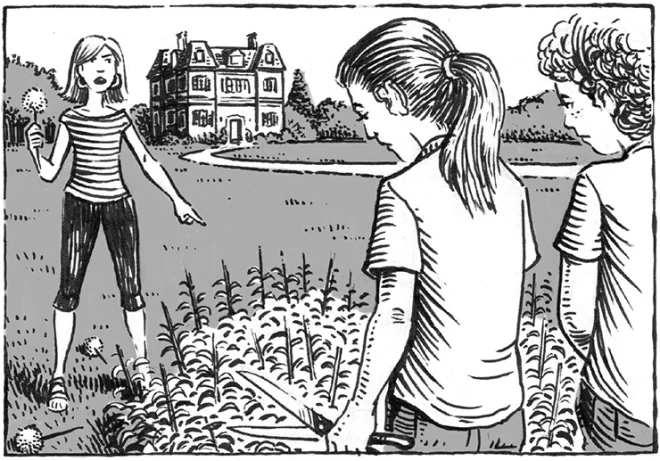I was talking to a friend about coping with pandemic stress. He suggested I try gardening. I paused. In general, you see, I try not to think about plants.
To explain: Toward the end of my college career, a professor approached me about a Summer internship working at a flower farm in France. It sounded like a great idea. I liked France. I had done a semester abroad in Paris, and I had nine years of French under my belt. I imagined myself on the sunny Brittany coast, learning how to windsurf, hiking the Black Mountains, and picking flowers in the fields outside of Quimper. I convinced a good friend, Terry, to accompany me on this journey, and we arrived in Brittany by ferry. A young woman picked us up at the port. She was so strikingly beautiful and young-looking, I assumed that she was the daughter of the flower farmer, Rosaline.
“Bonjour, comment va-tu?” I greeted the woman, using tu, the informal word for you. She winced and gave me a sour look. This was Rosaline, the farmer, an adult—and my Summer boss. I was too embarrassed to apologize for my mistake and hurried to shove my backpack into her trunk. Things went downhill from there.
Rosaline drove us to her farmhouse. It was a large structure, a veritable manoir made of handsome gray stone. We had spare, but spacious, rooms upstairs. After we got settled, Rosaline gave us a tour of the grounds, the toolshed, and a rather dilapidated greenhouse. The property was large with acres of untended land. Her father was some kind of diplomat, and the land had been in her family for hundreds of years. Next, Rosaline introduced us to composting. We stared at a huge pile of eggshells, leaves, twigs, and food scraps. We had never heard of organic farming. Finally, Rosaline showed us plants that might have been some kind of spike ball flower. She showed us how to cut them, pinching the stems, and embarking on a lengthy explanation. I immediately became aware that my French classes had not included organic gardening vocabulary. To make matters worse, in terms of French, Terry was more of a historian, majoring in history with an emphasis on the French Revolution. The bottom line was that neither one of us knew what she was talking about. We looked at Rosaline blankly, and then she promptly left us to our own devices. When we were done, Rosaline returned, furrowing her brow as she went from stem to stem.

“Non, non, non! C’est mal fait!” We stood, hands folded, heads bowed in schoolgirl humiliation. That was the last day we were allowed to get near her precious flowers.
The next day, we were told to don long-sleeved flannel shirts and jeans, which was odd because it was hot and humid. She led us to a thicket where we were instructed to spend the day removing a massive field of stinging nettles. Another day, we dug a trench with small trowels. Then it was repairing a stone wall that looked like it was from the Middle Ages. At this point, I half expected Rosaline to produce a toothbrush and make us clean the driveway.
Don’t get me wrong. It wasn’t all hard labor. She did take us to the beach. The water was freezing and the coastline jagged with stunning cliffs. Rosaline wore a monokini and looked like the shapely girl in the Tab soft drink commercial where the bikini-clad girl walks by a guy so mesmerized his girlfriend dumps ice-chest water on his head. Whenever Rosaline walked into the surf, Terry and I sang:
Tab, what a beautiful drink,
Tab, for beautiful people
Tab, you’re beautiful to me
16 ounces and just one calorie
Tab, what a beautiful drink
Tab, for beautiful people
Tab, it’s beautiful to me
Tastes so darn good and sugar free…
I couldn’t understand how she could withstand the cold. “N’y pense pas, marche et plonge,” Rosaline would say, her voice confident and authoritative. “Don’t think about it, walk and dive.” To this day, I repeat those words when immersing myself in chilly waters.
The weekend trips to the seaside, however, weren’t enough to keep me there. Our tour of duty was supposed to be for two months. But after only one, I packed my bags and headed to the Greek Isles to sleep off my Quimper disaster. Terry understood why I was fleeing, but decided to tough it out. We met up in Paris later that Summer.
So no, I told my friend, I won’t be coping with stress by planting a pandemic victory garden. I’ll be swimming in my pool and writing sad poetry.
I’m traumatized enough. ❖


 Previous
Previous

